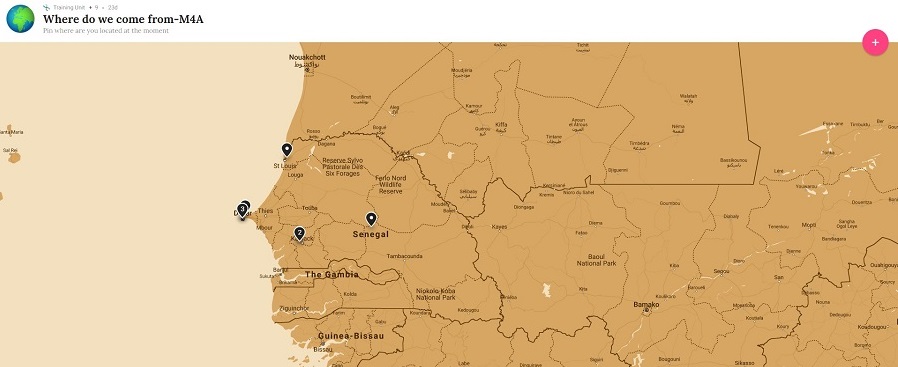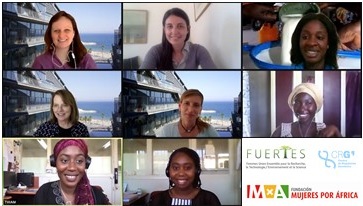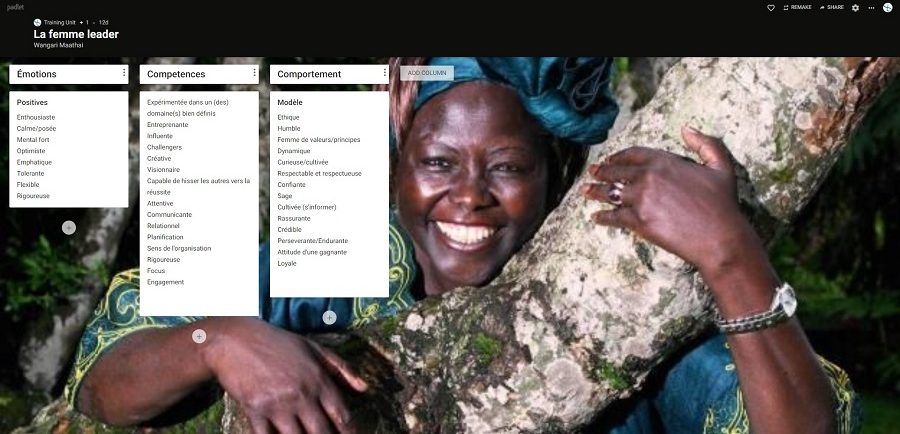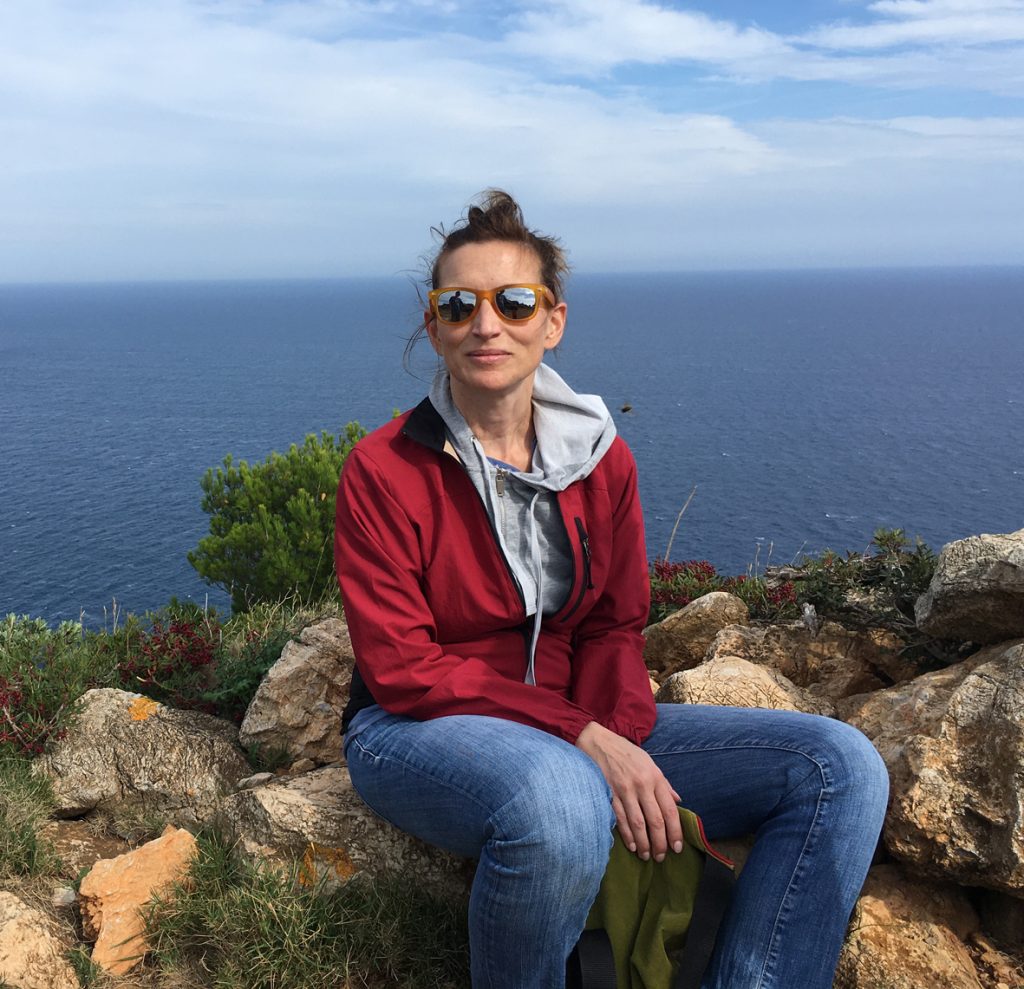Jun 11, 2021 · 4 min read
We feel powerful with renewed energies when we get inspired, and usually, the strongest inspiration comes from other people, women and men who trigger our inner strength with their examples.
This is how I felt during the leadership training that our institute, the Centre for Genomic Regulation, organized for a group of women researchers in Senegal. The course was held within the frame of the Project FUERTES (Femmes Unies Ensemble dans la Recherche , la Technologie Et l´Environnement) promoted by the Foundation Women for Africa in the agricultural sector in Senegal to confront the challenges of climate change and promote entrepreneurship, women empowerment and innovation.
From the first day, I got deeply inspired by the participating researchers and their dedication to their fascinating projects to fight against malnutrition and poverty, leveraging on local resources at the same time creating new opportunities for the local economy, empowering their communities with a strong focus on women. One of the researchers, for example, participates in the collaborative OR4FOOD project (https://or4food.cirad.fr/en) with the goal to fight against malnutrition in mothers and their children in Senegal through biofortification, which is the production of local crops with increased nutritional value. Her role is to evaluate the impact of the new biofortification strategies as well as of the education activities targeting the mothers.
Due to the pandemic times that we are all living in, we could not meet in person and we had to deliver the course online with new creative and interactive formats, a few hours every afternoon for a full intensive week. Together with Isabelle Vernos, Damjana Kastelic, Marie Trussart, Alex Nikolaou and Marta Agostinho, we imagined being there in Senegal, looking in Google maps at the different regions and cities they were mentioning, and we did our best to build a trustful atmosphere where everyone was encouraged to share their experiences, challenges and aspirations.

Figure 1. Map of Senegal to orient the instructors.
The training included different modules that encompassed interactive exercises and discussions to listen and learn from each other. This was our week:
Monday. Isabelle, PI at the CRG and chair of the CRG Gender Committee, led a reflection on the importance of having a mentor in our careers, to improve our competences and self-confidence, to receive critical feedback or to be able to face challenging moments. “A single conversation across the table with a wise (wo)man is better than 10 years mere study of books” (Henry Wadsworth Longfellow).
Tuesday. Marie, postdoc at the Walter and Eliza Hall Institute of Medical Research in Australia, taught how to identify our inner strengths, how to recognize our emotions and gain a positive self-belief, in order to develop our professional goals, following the Kintsugi Coaching methodology. Kintsugi means literally “to repair with gold”, a Japanese practice to repair ceramics or other ornamental objects with precious metals, such as gold. The goal of the session was to reflect on experiences while exploring resources to support women at all levels to grow and build their careers with engagement. “There are opportunities even in the most difficult moments”, said Wangari Maathai, the first African woman to receive the Nobel Prize for Peace, acknowledging her contributions to democracy and sustainable development.
Wednesday. Marta, coordinator of the EU-LIFE alliance, organized an interactive session on the vision and broader impact of our research projects. Is research just leading to scientific publications and patents? We reflected on impact beyond publications, leading to a real change in society, which is indeed the ultimate goal these researchers in Senegal want to obtain in their country.
Thursday. It was my turn to engage into a conversation about how to set up and cultivate collaborations, and the right ingredients and tips for successful collaborations among academic institutions and other stakeholders including industry, and Alex presented the principles of project management with concrete practical solutions on how to manage our projects efficiently, from initiation, planning to execution, control and closure.
Friday. We reached the end of the week with Damjana discussing about the importance of setting priorities, proposing practical tips to manage our time more efficiently, avoiding to drown in last moment urgencies. Even if we live in very different countries, in Europe and in Africa, we realized that we all struggle with the same problem, to find the calm and concentration to realize the so-called “B tasks” in the Eisenhower matrix – those tasks that are not urgent but very important for our projects and career. The final session connected all the dots and focused on individual action plans to bring theory to practice – all participants presented their action plans for their research projects, incorporating what they learnt during the week with an even stronger commitment to fight against the challenges in Senegal through research.

Figure 2. Still smiling after an intensive week.
And the week came to an end with some time to relax and recover energies, full of inspiring memories of our intensive virtual week in Senegal. One memory will always be the profile of the “women leader”, which the Senegalese researchers drew, inspired by the beautiful smile of Wangari Maathai, including competencies, emotions and behaviours, which ideally, we should all aspire to have.

Figure 3. The emotions, competences and behaviours of a woman leader, with the inspiring smile of Wangari Maathai in the background (source: http://www3.gobiernodecanarias.org/medusa/edublogs/ceipanselmoperezbrito/2018/01/17/descubriendo-a-wangari-maathai/)
